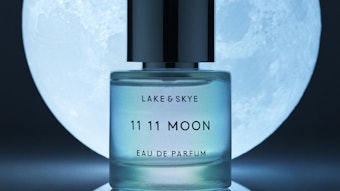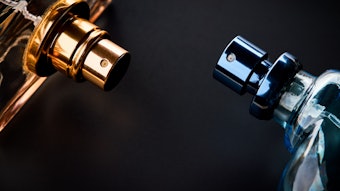
In our Ask An Expert series, senior perfumer Serge Oldenbourg has been fielding questions from fragrance professionals from around the world. The latest question comes from an aspiring perfumer looking to make their way into the field. Oldenbourg plans to answer this question in four parts. Miss Part 1? You can find that here.
Part 2: Where perfumers are educated?
This is addressed to the one who intends to work as a perfumer and possibly, become a member of the ISPC (International Society of Perfumer-Creators)!
A fragrance is a mixture of odorant materials which, besides the overall odor, have specific characteristics like evaporation time (head, middle, dry-out), and strength; and each interaction will be specific to the dosage to each other.
That is the beginning of perfumery learning. But there is more to learn. For example, one very important field is the regulatory aspect of using odorant materials; a perfumer has to be aware and care for healthy consideration for consumers. Where will you receive the necessary advice in this process?
There are 5 possibilities:
- Schools recognized by the industry
- Universities
- In-house schooling
- Web schooling/Online courses
- Apprentice with a perfumer
1. Schools recognized by the industry
These schools are organized and supported by some companies in our industry to provide qualified members for the F & F industry. Perfumers, flavorists and cosmeticians are taught the basic knowledge required to start a career. For perfumers, these will give the candidates the possibility to become junior perfumers under the direction of a senior perfumer.
These schools require a degree in science (generally chemistry) and have a program of 4 to 5 years. To my knowledge, there are only two of them ISIPCA and ESP in Paris (France).
2. Universities
Few universities opened courses in perfumery during the last ten years. Here only the basics of perfumery will be taught during three years. Same as previously the candidates will be starting their careers as junior perfumers under the direction of a senior perfumer.
Universities providing such courses are in France, Germany and to some extent in USA.
3. In-house schooling.
The royal path to become a perfumer! Here teachers are confirmed and highly successful perfumers (Seniors or Masters). The process to get selected for these schools varies on the company’s policies and their needs. Usually, companies try to educate future perfumers in order to compensate for the natural fluctuations like retirements. They expect the in-house trained perfumer to stay in the company for several years.
4. Web schooling/ Online courses
You may have seen a number of ads on the web for “perfumery schools” providing information, materials and online teaching. They do not require any information about your level of knowledge in chemistry or understanding of regulations. How much to be learned is difficult to evaluate and requires definitively to be careful.
5. Apprentice with a perfumer
This is certainly the most exciting way to become a perfumer (and the most traditional). Having the luck of being employed by an independent perfumer as his/her assistant, you can learn “in vivo” the use of materials, understand the structure of fragrances, the reason for differences in materials in regards to the final fragrance application, and so on.
Coming up next...Part 3 of 4: What knowledge do you need to make yours?










